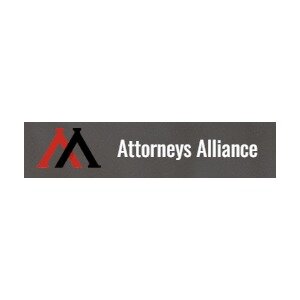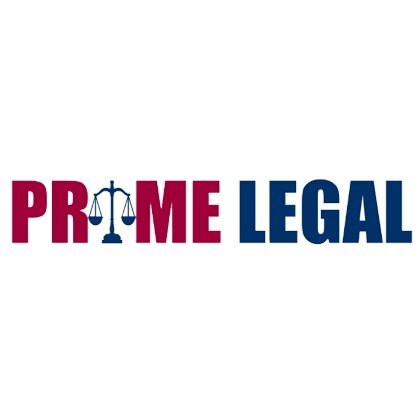Best Structured Finance Lawyers in Nepal
Share your needs with us, get contacted by law firms.
Free. Takes 2 min.
Or refine your search by selecting a city:
List of the best lawyers in Nepal
About Structured Finance Law in Nepal
Structured finance refers to complex financial instruments used to manage risk and raise capital, often involving securitization, derivatives, and customized transactions. In Nepal, structured finance is an emerging field that supports economic development by enabling banks, corporations, and government bodies to access finance more efficiently and manage risks. The legal framework for structured finance in Nepal incorporates both domestic legislation and a growing body of regulatory standards, ensuring that such transactions are carried out lawfully and transparently.
Why You May Need a Lawyer
Structured finance transactions are typically intricate, involving multiple parties, legal entities, and layers of regulation. You may need a lawyer in the following situations:
- Structuring securitization deals or asset-backed securities
- Drafting and negotiating contracts in complex financing arrangements
- Ensuring compliance with Nepal Rastra Bank (NRB) regulations and other financial laws
- Advising on cross-border finance transactions
- Managing risks related to taxation, insolvency, or bankruptcy
- Resolving disputes among stakeholders
- Assisting with due diligence and regulatory filings
Legal guidance can prevent costly mistakes, ensure regulatory compliance, and protect your interests in any structured finance arrangement.
Local Laws Overview
Structured finance in Nepal is governed by a combination of laws and regulations, including:
- Banking and Financial Institution Act (BAFIA): This act outlines rules for financial transactions, lending, and capital markets operations.
- Nepal Rastra Bank Directives: The central bank regularly issues directives impacting structured finance, including risk management, capital adequacy, and reporting requirements.
- Company Act: Governs the formation and management of legal entities often involved in structured finance transactions.
- Securities Act: Relevant for securitization and issuance of asset-backed securities.
- Contract Act: Regulates the validity and enforceability of agreements, security interests, and covenants.
- Foreign Investment and Technology Transfer Act: Important for cross-border structured finance deals.
Regulators such as the Nepal Rastra Bank, Securities Board of Nepal (SEBON), and Ministry of Finance play crucial roles in overseeing compliance and enforcing rules within the sector.
Frequently Asked Questions
What is structured finance?
Structured finance involves complex financial arrangements designed to address specific funding needs, often through securitization or asset-backed securities. These structures manage risk and allow entities to access capital that might not be available through conventional financing.
Who regulates structured finance activities in Nepal?
Structured finance in Nepal is primarily regulated by the Nepal Rastra Bank and the Securities Board of Nepal, along with other government agencies as needed depending on the structure and sector.
Are non-residents allowed to participate in structured finance transactions in Nepal?
Yes, but participation is subject to certain restrictions and regulatory approvals. Compliance with the Foreign Investment and Technology Transfer Act and Nepal Rastra Bank rules is essential.
What laws are applicable to securitization in Nepal?
Securitization is chiefly governed by the Securities Act, the Banking and Financial Institution Act, and regulatory directives from SEBON and the central bank.
How are risks managed in structured finance arrangements?
Risks are typically managed through legal mechanisms such as covenants, collateral, insurance, and diversification, all of which must comply with local laws and regulatory standards.
What are common structured finance products in Nepal?
Common products include asset-backed securities, mortgage-backed securities, project finance structures, and syndicated loans, though the market is still developing.
Can structured finance be used for infrastructure projects in Nepal?
Yes, structured finance is a popular tool for raising capital for large infrastructure projects, especially those that require significant upfront investment and long repayment periods.
What are the documentation requirements for a structured finance deal?
Documentation will typically include a suite of legal agreements such as loan contracts, security documents, offering memoranda, and trust deeds, all subject to approval by relevant authorities.
Is local legal counsel necessary for cross-border structured finance deals?
Engaging local legal counsel is highly recommended, as Nepali laws and regulations can be complex and may differ substantially from those in other countries.
How can disputes in structured finance transactions be resolved?
Disputes can be resolved through negotiation, arbitration, or litigation, depending on the terms of the contract and relevant laws. Parties often agree on dispute resolution mechanisms in advance within their contracts.
Additional Resources
For further information and assistance on structured finance in Nepal, you may consider the following resources:
- Nepal Rastra Bank - Central bank oversight and regulatory guidance
- Securities Board of Nepal (SEBON) - Regulatory authority for securities and capital market transactions
- Ministry of Finance - Policy and legislative updates related to finance
- Nepal Bar Association - Access to qualified legal professionals
- Institute of Chartered Accountants of Nepal (ICAN) - Insights into financial structuring and compliance
Next Steps
If you require legal assistance in structured finance, start by identifying the nature and scope of your transaction or issue. Collect all relevant documentation and outline your objectives. It is advisable to consult a lawyer who specializes in finance law or has experience with structured finance products. You can find reputable legal counsel through the Nepal Bar Association, personal referrals, or direct inquiries at law firms with finance expertise. Prepare questions and ask about their experience with local regulations and structured finance instruments. Timely legal advice will help you navigate complexities, ensure compliance, and safeguard your financial interests in Nepal.
Lawzana helps you find the best lawyers and law firms in Nepal through a curated and pre-screened list of qualified legal professionals. Our platform offers rankings and detailed profiles of attorneys and law firms, allowing you to compare based on practice areas, including Structured Finance, experience, and client feedback.
Each profile includes a description of the firm's areas of practice, client reviews, team members and partners, year of establishment, spoken languages, office locations, contact information, social media presence, and any published articles or resources. Most firms on our platform speak English and are experienced in both local and international legal matters.
Get a quote from top-rated law firms in Nepal — quickly, securely, and without unnecessary hassle.
Disclaimer:
The information provided on this page is for general informational purposes only and does not constitute legal advice. While we strive to ensure the accuracy and relevance of the content, legal information may change over time, and interpretations of the law can vary. You should always consult with a qualified legal professional for advice specific to your situation.
We disclaim all liability for actions taken or not taken based on the content of this page. If you believe any information is incorrect or outdated, please contact us, and we will review and update it where appropriate.
Browse structured finance law firms by city in Nepal
Refine your search by selecting a city.

















